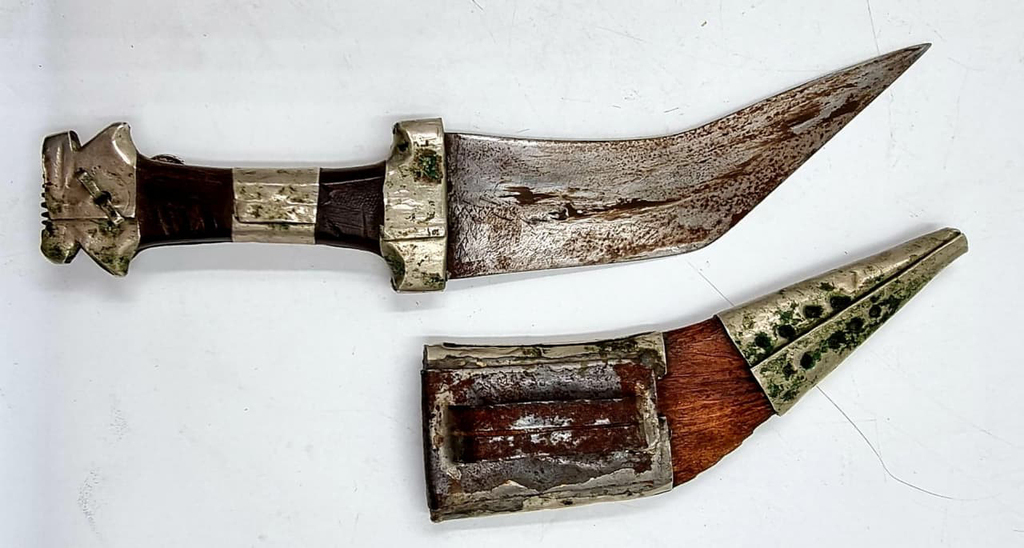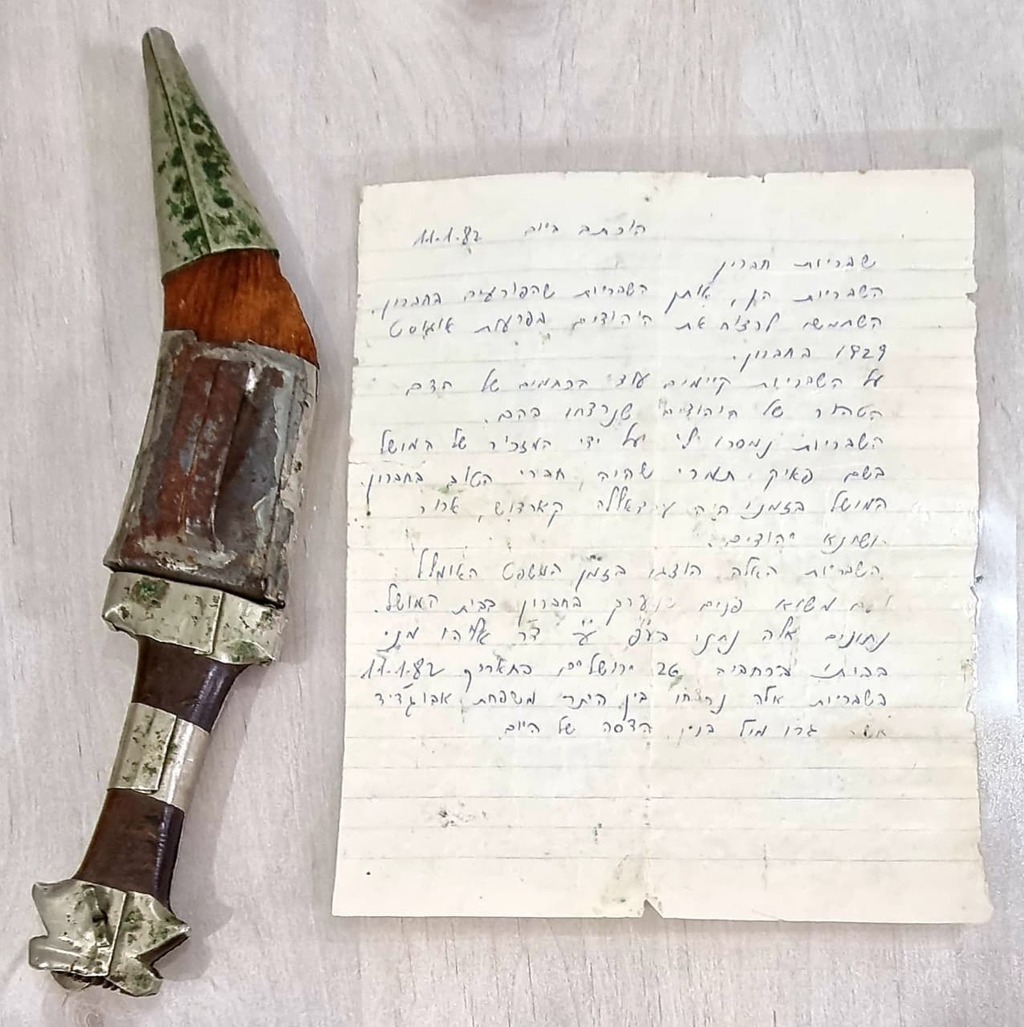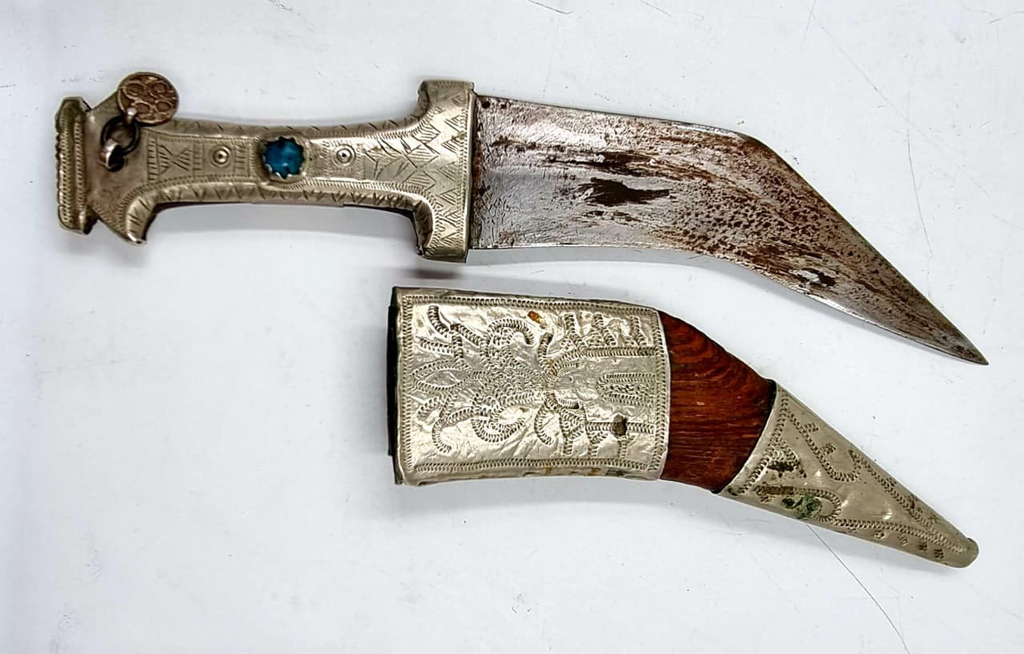An ancient dagger still soiled with blood and is believed to have been used in the 1929 massacre of Jews in the West Bank city of Hebron has now been put up for sale by its current owner.
Eliyahu Abushdid, a Jewish resident of Hebron, and at least three other unidentified men are believed to have been killed by the dagger during the riots in the West Bank city.
3 View gallery


A blood-stained dagger used to kill Jews during the 1929 massacre in Hebron
(Photo: Eyal Iliya)
The 1929 massacre that occurred during the British Mandate, saw 67 Jewish men, women and children murdered by Arab rioters. In total 133 Jews died in the violent attacks all over the country.
The dagger, now owned by Amira Zangi a 71-year old resident of Ramat Gan, was given to her by her father Dr. Eli Mani, a native of Hebron. "The dagger was given to my father by his best friend Faiq Tamari, who was secretary to the Governor of Ramallah at the time," she says.
Tamari gave my father three daggers to protect his three children in case of another massacre. "The Arab Jewish relations at the time remained tense and my father took his words as a warning. He soon left Hebron for Jerusalem and in 1936, a second massacre did in fact take place," Zangi says.
In a letter he wrote before his death in 1982, Mani wrote about the daggers in his possession with the Jewish blood still on them. He wrote that they were used as evidence in the criminal trial at the time, which resulted in the execution of some of the rioters.
3 View gallery


A dagger used to kill Jews during the 1929 massacre in Hebron and a letter explaining its history
(Photo: Eyal Iliya)
"With these daggers, members of the Abushdid family, among others, were murdered," Mani wrote.
Zangi says she remembers her father's close friend.
"After the Six-Day War, my father took us to visit his friends, whom he had not seen since the establishment of the State of Israel. Those were euphoric times and we met Fariq and the Husseini's in Jerusalem, a very respectable family," she says.
I remember being told by our host that I should be proud to be the daughter of a man such as my father," Zangi says.
We visited Hebron, and the Mani family home and I saw how emotional my mother became. After only a few minutes, he wanted to leave. It was too much of an open wound for him. The daggers give me chills to this day," she says.
Zaguri decided to sell one of the daggers after reading in Ynet's sister publication Yedioth Ahronoth about the sale of documents from the 1948 War of Independence.
3 View gallery


A blood-stained dagger used to kill Jews during the 1929 massacre in Hebron
(Photo: Eyal Iliya)
"I thought there was no point in the daggers just picking up dust in my safe and that after I die, my kids may not understand its historic value, so I decided to sell it and give the money to my children," she says.
She reached out to the local auction house that had dealt with the old documents and other historical artifacts.
"It is difficult to gage the value of such a historic artifact," Eyal Ilya, its owner, says.
"The dagger tells of a tragic part of our history in this land and should be in a museum and not in the hands of a private collector," he says.
.
"
First published: 11:57, 11.01.21

